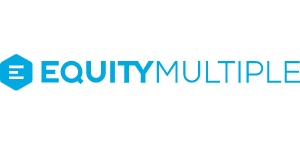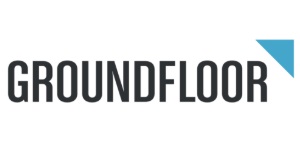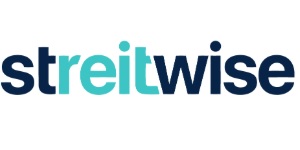Real Estate Crowdfunding Investing 2024: A Beginner’s Guide
 Real estate crowdfunding investing is a way for ordinary investors to profit from high-quality real estate properties that were mostly unattainable a decade ago.
Real estate crowdfunding investing is a way for ordinary investors to profit from high-quality real estate properties that were mostly unattainable a decade ago.
After the U.S. Congress passed the JOBS Act of 2012 (Jumpstart Our Business Startups), real estate crowdfunding platforms began to emerge, utilizing the new law and modern technology to empower investors.
The law is primarily intended to help small businesses raise capital by easing restrictions and enabling equity crowdfunding (owning company shares). Before then, crowdfunding was only allowed on sites like Kickstarter and Indiegogo.
Some of the trailblazing real estate platforms that started in 2013 are still around (e.g., Fundrise and RealtyMogul) while others have folded (most notably, RealtyShares and PeerStreet).
I’ve been investing on real estate platforms since 2016. That’s when I started researching and experimenting with investments, allocating money into private real estate debt deals, eREITs, and peer debt lending.
I immediately realized how this industry would enhance the opportunities for real estate developers to raise capital and spread risk. It also enabled individual investors to put their money into more real estate investment categories, efficiently diversifying their real estate portfolio — an obvious win-win.
The underlying asset, real estate, hasn’t changed, and thus, there’s a long history of the benefits and risks to acknowledge before investing money.
That’s why I’ve endorsed real estate crowdfunding ever since learning about it. But it can be a challenge to understand how it works.
In this article, I will describe the benefits of real estate crowdfunding investing and different types of products and platforms. If you’re interested in owning real estate this way, you’ll leave how to choose which platform is best for you.
Below you’ll find a table of contents to navigate this post (4000+ words).
Table of Contents
Real Estate Crowdfunding Investing Platform Comparison Table
Below is a table containing comparison information about some of the leading real estate crowdfunding platforms. I’ve chosen these companies because of their reputations, deal flow volume, and my exposure to them over the past few years.
A “*” in the last column is indicative of partner platforms. I maintain affiliate relationships with many of these platforms, and I may receive compensation if investors sign up and fund accounts through this website.
Table data is provided for informational use only. I do not guarantee accuracy as fees and liquidity are complex, may be interpreted differently by others, and may change without notice.
Real estate crowdfunding policies and fees can be highly difficult to understand. Use this table as an initial foray into the platforms, but also read the offering circulars, platform FAQs on their sites to verify, or call the customer service lines for clarification.
Please check out my detailed reviews for deeper dives into a few of these platforms. I intend to review more, but these take a significant amount of time and brainpower to figure out!
I’ll continue to update and enhance this comparison review over time.
| Platform | REITs | Equity | Debt | Minimum | Liquidity | Fees | Accredited Required? | |
|---|---|---|---|---|---|---|---|---|
 | Yes | Yes | Yes | $10 | Early withdrawal penalty | 1% | No | * Learn More → |
| Within 3 years - 3% | ||||||||
| Within 3-4 years - 2% | ||||||||
| Within 4-5 years - 1% | ||||||||
 | Yes | Yes | No | $100 | SFR Fund Quarterly | Sourcing 3.5%-5% | No | * Learn More → |
| Individual properties - 5-7 years | AUM: 0.15% | |||||||
 | No | Yes | Yes | $5,000 | Duration of deal | 0.5% annual | Yes | * Learn More→ |
| 6 Months- 5+ years | +10% of profits | |||||||
 | No | No | Yes | $10,000 | Duration of deal | Per deal 1%-4% | Yes | * Learn More→ |
 | Yes | Yes | Yes | $25,000 | C-REIT: Holding period | C-REIT: 1.5% of NAV | Yes | * Learn More→ |
| Private deals: Duration | Sponsor fees of 1%-5% depending on deal. | |||||||
| 0.25%–2.5% for tailored portfolios | ||||||||
 | No | Yes | No | $5,000 | 3- 5 years | 2% of initial investment | Yes | * Learn More → |
| + 0.75% annual | ||||||||
 | No | No | Yes | $1000 deposit. $10 minimums after that. | Duration of deal | None for investors | No | Learn More→ |
 | Yes | Yes | Yes | $5000 | Various liquidity 1-5 years | 2% annual from dividend | No | Learn More→ |
 | Yes | Yes | Yes | $5,000 | Private deals 1%-2% | 3% of initial investment + 1%-1.25% annual | No | * Learn More→ |
| Early withdrawal penalty | + 2% annual | |||||||
| 1-2 years - 10% of value | ||||||||
| 2-3 years - 7.5% | ||||||||
| 3-4 years - 5% |
Why Real Estate Crowdfunding Investing Instead of Regular Real Estate?
Owning rental properties is still one of the best ways to grow passive income and wealth.
I had a rental property for eight years until I cashed out.
But there are some challenges with traditional real estate investing. It can be a significant hurdle to set aside enough money to purchase your first property. Once you do, there’s a learning curve to becoming a landlord and managing a property, and real estate management companies are expensive.
Most of all, it’s hard to find good deals, especially in densely populated urban markets.
Investing in cheaper areas or finding out-of-state properties brings on a whole new set of challenges.
For simplicity’s sake, real estate crowdfunding is a good option for many investors who want diversified real estate exposure without buying a property.
Pros of Real Estate Crowdfunding Investing
There are lots of good reasons to invest via real estate crowdfunding platforms.
- Lower Investment Minimums
- Diversification
- Reduced Risk
- Unlock Previously Unavailable Real Estate Classes
- Tax-Advantaged Accounts Available
- Avoid Debt
Lower Investment Minimums
To buy an investment property, you’ll likely need at least a 10% down payment to get a loan to cover the balance. For a $100,000 property, that’s $10,000.
Some real estate crowdfunding sites allow you to get started with a $500 or $1000 minimum investment. You can get started online with a few clicks.
Diversification
Since you can invest with smaller amounts, it’s easier to diversify your portfolio among several different properties scattered across the country. You can also invest in various real estate asset types.
Reduced Risk
Investing smaller amounts among different types of properties in diversified geographic locations, you reduce your investment risk — a crucial consideration for novice investors.
However, you give up control of the property selection and management. More experienced investors may prefer to own properties directly to maintain control of their risks.
Unlock Previously Unavailable Asset Classes
One of the most exciting aspects of real estate crowdfunding is the type of properties in which individual investors can invest. Commercial properties (industrial, hospitality, restaurants, etc.), multifamily residential, and farmland are all assets classes available with crowdfunding.
These kinds of properties would require more substantial capital outlays than single-family homes or condominiums if you were to invest directly, making them less attainable to most investors without crowdfunding.
Tax-Advantaged Accounts Available
You can invest in real estate crowdfunding platforms using tax-advantaged accounts such as self-directed IRAs. Using these accounts reduces your overall tax burden.
The platforms do not administer IRA accounts, but many have partnerships with self-directed IRA providers.
Avoid Debt
Most traditional real estate investing involves getting a loan to help pay for the property, using other people’s money to build wealth — as the expensive seminar guru like to say.
Debt is a powerful wealth-building tool when it enables the acquisition of a profitable investment. But not everyone is comfortable with taking on a lot of debt.
Real estate crowdfunding can make you an investor without borrowing money.
Cons of Real Estate Crowdfunding Investing
Now let’s take a look at some of the negative aspects of real estate crowdfunding investing.
- Limited Liquidity
- Spectrum of Transparency
- Complicated Fee Structures
- Complex Legal Structures
- Additional Administrative Tax Burdens
- Investments Carry Varying Risk
Limited Liquidity
All real estate is less liquid compared to cash savings, stocks, and bonds.
Nearly all real estate crowdfunding platforms and investment types have limited liquidity. That means that you may not be able to withdraw funds at will, or you may be charged a penalty for early withdrawal.
Generally speaking, private debt and equity deals on crowdfunding platforms are less liquid than crowdfunded REITs.
Some private debt and equity deals may tie up your funds for five years or more. So if you need to access your cash in the near term, it’s best to avoid illiquid real estate investments.
When investing in non-traded REITs, be sure to note the liquidity rules and penalties for early withdrawals.
Spectrum of Transparency
Each real estate crowdfunding platform is different. You need to understand how each one operates and the level of transparency communicated to investors.
Some investors may want professional investment managers to decide which investments are best. More sophisticated investors may demand access to the details of each investable deal.
Certain platforms provide lots of data for investor due diligence, while others give few details about specific investments.
Before you invest, make sure the amount of transparency matches your comfort level.
Complicated Fee Structures
Fees are an essential consideration for all of your investments. Understand the fee structure for some crowdfunding site can be a challenge.
That’s because regulations, securities reporting, and legal teams sometimes dictate fee structures. High fees are always a turnoff, but if certain investments have a high net total return, the costs may be worthwhile.
Make sure you understand the fees before you invest. If the fees are too complicated, you may want to consider other platforms.
In the table below, I’ve done my best to explain the fees. But you may need to dig a little deeper, and all are subject to change.
Complex Legal Structures
Real estate crowdfunding REITs are securities regulated by authorities. Since they are regulated, and the offering circulars are publicly available on the SEC website, they are suitable for ordinary non-accredited investors.
But private deals often come with more complicated legal structures such as LLCs and partnerships. The formation of separate legal entities helps to protect the deal sponsor, investors, and platforms.
Being a part of one of these entities in the event of a lawsuit could lead to some headaches. At a minimum, they usually increase your tax reporting obligations.
Additional Administrative Tax Burdens
Tax reporting varies for different types of real estate crowdfunding investing. You are responsible for the tax consequences of all of your investments, and the platforms aren’t eager to give you advice.
They say to hire a CPA, which comes with a cost.
Interest earned from REITs and most private debt investments are reported to the tax authorities as a 1099-DIV, 1099-INT, or 1099-OID.
However, legal entities such as partnerships are typical for equity deals and require that investors receive a K-1 to be reported on their annual tax return. K-1s are often delivered after tax season, requiring the investor to file for an extension.
Investments based in states outside of your residence may require additional state tax return filings.
Understand the tax consequences of any real estate crowdfunding before committing funds.
Investments Carry Risk Which May be Difficult to Understand
In favorable investment climates, we become accustomed to steady returns. Like stocks, real estate investments can and do go sour. Even an adequately diversified real estate crowding investing portfolio can lose money.
The risks are certainly prevalent in real estate crowdfunding, especially if you’re investing in individual properties. If you decide to invest in real estate crowdfunding, invest on a platform where you can get sufficient diversification for the amount of money you intend to invest.
Non-Accredited vs. Accredited Investors
One of the most important distinctions in real estate crowdfunding investing is not about the real estate at all — it’s about your personal accreditation.
To be considered an accredited investor in the eyes of the SEC, a person must have:
- earned income of greater than $200,000 per year (or $300,000 with a spouse) in each of the prior two years, and expects the same for the current year, OR
- net worth over $1 million, either alone or together with a spouse (excluding the value of the person’s primary residence).
Most platforms rely on the investor for self-accreditation. That means you tell them whether or not you are accredited. With limited options to verify accreditation, the platforms place the burden on investors.
Accreditation is defined in Rule 501 of Regulation D of the U.S. Securities and Exchange Commission (SEC) and is considered outdated and mostly irrelevant in the investor community. The regulation needs to be modified to lower accreditation thresholds, but that would require legislation.
Here’s what the SEC says about accredited investors:
Under the federal securities laws, only persons who are accredited investors may participate in certain securities offerings. One reason these offerings are limited to accredited investors is to ensure that all participating investors are financially sophisticated and able to fend for themselves or sustain the risk of loss, thus rendering unnecessary the protections that come from a registered offering.
In other words, some investments are unregulated. Therefore, individual investors are not protected by government oversight.
In real estate crowdfunding investing, generally speaking, REIT investments are heavily scrutinized by the SEC and are therefore available for non-accredited investors. Most individual equity and debt deals are not regulated and therefore require that the investor be accredited.
To choose an investing platform, you can quickly eliminate several if you are not accredited. Some cater to both accredited and non-accredited investors.
In any case, there’s almost always a platform that’s right for U.S.-based individuals, if real estate crowdfunding investing is right for the investor.
Types of Real Estate Crowdfunding Investments
Non-Traded REIT Investing
Real estate investment trusts (REITs) are investment products regulated by the Securities and Exchange Commission (SEC). Traditional REITs, by law, pay 90% of their profits to shareholders in the form of a dividend and trade on the stock market.
Non-traded REITs do not trade on the stock market. They are purchased or liquidated on the proprietary online crowdfunding platforms, but they do not trade on an exchange.
Regulation A of the 2012 JOBS Act raised the limit for securities offering to up to $50 million. This provision opened the floodgates for real estate crowdfunding, even though it was meant to help startups raise capital.
The total fundraise of any single non-traded REIT fund must therefore not exceed $50 million.
Any new non-traded REIT must be created through an SEC filing.
Most crowdfunding platforms only have one or two REITs. The exception is Fundrise, which has raised enough investor capital to create more than a dozen eREITs (Fundrise trademarked the term eREIT).
When you own a REIT, you put your faith in the fund management team to identify a portfolio profitable real estate deals. They use investor cash to buy properties (equity deals) and lend money to other real estate developers (debt deals).
The value of the diversified investment portfolio is based on cash flow and the appraised value of each property. Regular dividends are paid to investors, and profits are reinvested back into portfolio growth.
Investors can choose to either receive the cash dividend or choose to reinvest back into the fund (REIT policies vary).
An important note about Non-Traded REITs vs. Traditional REITs
Understanding this fundamental difference is one of the most important concepts to grasp before moving forward with a REIT investment.
One of the most common questions is why you’d want to invest in a real estate crowdfunding REIT when you can buy traditional REITs on the stock market with better liquidity?
The answer is that non-traded REITs are not correlated to stock market fluctuations or Wall Street analysis. Therefore, fund managers can focus on maximizing long-term returns instead of quarterly expectations.
This may seem trivial. However, the whole point of real estate crowdfunding investing is to diversify into another asset class. Diversifying away from stocks is a critical wealth-building strategy, and not achieved with traditional traded REITs alone.
Leading non-traded REIT platforms:
Equity Deals (Private)
Real estate crowdfunding equity deals typically involve a real estate developer engaging the crowdfunding platform to raise money to buy a property such as a commercial building or apartment complex. The platform raises money from individual investors (the “crowd”), then uses the money to fund or partially fund an acquisition.
The platforms create a separate legal entity (LLC) for each deal to protect the investment and investors. Each investor owns a percentage of the LLC, depending on the size of their investment.
This structure is similar to the way “syndicated” deals are put together. Syndicated real estate deals are typically assembled through professional networks and relationships.
The investor makes money when the value of the property rises, and the entity liquidates the asset. Since most deals take time to mature, the holding period is often five years or more. Some deals also pay investors a dividend while they wait for asset appreciation.
Investors will be required to file taxes for interest income and any income reported on K-1s. They may also be required to file a separate state tax return if the deal is not in their home state.
Since authorities do not scrutinize private investment equity deals, investors must be accredited to participate.
Leading Equity private deal platforms:
Private Debt Deals
Private debt deals are simply loans to real estate developers, funded by the crowd. For example, developer XYC needs $3 million to buy an apartment complex, so they partner with a crowdfunding platform to raise money.
Investors each invest a fraction of the total amount at a fixed interest rate. Then the borrower repays the loan over a set period. These are often bridge loans, paid as interest-only monthly dividends until the end of the term when the lump sum is returned to investors. Investors receive a Form 1099 to report on their taxes.
Each private debt deal is structured as a legally separate entity, but they do not involve property ownership making the tax consequences more straightforward.
Leading private Debt deal platforms:
Preferred Equity
Preferred equity is a less common investment type in real estate crowdfunding, but is yet another way to diversify a portfolio. Similar to common equity, preferred shareholders are given preference in regards to the distribution of cash flows before common equity holders, but are subordinate to debt.
Preferred shareholders receive a return on their investment first, up to a certain threshold. Returns are more predictable in exchange for a capped total return on equity. It’s a hybrid of debt and equity.
Preferred equity opportunities:
1031 Exchanges
Also less common, these are investments offered by some platforms to help investors defer capital gains from the sale of a previously owned property.
1031 exchange opportunities:
Platform Quick Descriptions
Fundrise (review) – Industry trailblazer. The first to create and fully fund crowdfunded REITs. $10 minimum to invest.
Arrived Homes (review, returns) – Own shares of single-family homes and vacation rentals for a $100 minimum investment.
EquityMultiple (review) – Commercial deals. The only online investing platform backed by an established real estate company, Mission Capital, a leading national real estate capital markets firm. Minimums generally start at $10,000.
YieldStreet – An alternative investment playground that offers more than just real estate. Also invest in litigation finance, marine financing, and crowdfunded fine art. Accredited investors only. Minimums per deal, typically $10,000 or more.
Crowdstreet – Quickly growing, has some of the highest deal volumes in the industry. Both REITs and private deals. $10,000 minimum private investments. $1,000-$5,000 for REITs.
GROUNDFLOOR – Single-family debt investments are available to non-accredited investors. $1,000 initial deposit required. $10 minimum investment after that.
Streitwise – Straightforward platform and fees. $5,000 minimum investment for non-accredited investors.
AcreTrader – Equity deals for farmland and agriculture. Age-old assets, now available in 1/10 acre land plots. Minimums deal dependent, generally starting at $15,000.
RealtyMogul (review) – Started as mostly private deals, but pushing towards REITs. $5,000 minimum for both MOGULREIT I and MOGULREIT II.
Rich Uncles – Lowest minimum investment: $5 to invest in the Rich Uncles REIT. Not available in all states.
Choosing the Best Platform for You
Before getting started, you need to determine why you want to invest in real estate crowdfunding.
Are you thinking about buying a rental property? If so, you might need to save for a down payment instead.
Do you own stocks yet? Stocks and index funds are easier to own and more liquid. I would own stocks before real estate crowdfunding assets. Do you own any traditional REITs already? If you, you already have real estate exposure.
These considerations may impact your decision to move forward. Once you’ve decided to invest in real estate crowdfunding, you need to perform platform research.
You can use articles like this as a place to start, but you’ll undoubtedly need to look deeper into the platform websites and SEC filings before moving forward.
Always read the available offering circular or deal documentation before investing.
If you’re not sure real estate crowdfunding is for you, you’re not missing out. It’s not like the stock market where you watch a bull market rise out of control. New investable real estate deals emerge every day. You can always start investing another day. Returns on high-quality real estate will always be available.
Non-Accredited Investors
Start by determining if you are accredited or not. If you are not accredited (most readers, see definition earlier in the article), you’ll be limited to non-traded REIT investing.
That’s fine because there are still excellent options, and it’s a simpler process to invest in REITs.
Choose the REIT platform with the best diversification for your money. My favorite is Fundrise because it has several eREITs available for investment. I’ve invested on the Fundrise platform for a few years and have enjoyed near double-digit returns since I started investing.
But don’t jump in just because I invest there. Do your research before committing funds. Other REIT platforms may be just as good or better for your objectives.
Please note: This is a testimonial in partnership with Fundrise. We earn a commission from partner links on RetireBeforeDad.com. All opinions are my own.
Accredited Investors
Crowdfunding platforms are all vying for accredited investor money to fund the supply of loan volume. So accredited investors have their pick of the litter as they qualify to invest on any of the platforms.
First, decide how much money you are planning to invest. Keep in mind, some of your investment dollars may be tied up for several years. Only invest with money that you won’t need for 5-10 years.
I only recommend investing in private debt and equity deals if you plan to invest at least $20,000 for 5-10 years. More money is better, ideally more than $50,000, to be able to diversify your holdings.
Individual private equity real estate deals have the highest potential for long-term annual returns above 20%. Of course, these require significant minimum investments (often $25,000 or more) and come with a lot of risks. You may lose money.
If you decide to invest in private debt and or equity deals, choose a platform with a high volume of available deals. You want to have a diverse pool of deals to analyze and select the best options for your objectives.
Conclusion – Real Estate Crowdfunding Investing Guide 2024
Real estate crowdfunding investing is a maturing industry. The explosion of platforms has subsided, and leaders have emerged. This article comes nowhere near to covering all of the platforms or considerations to prepare to invest your money.
I hope to write more detailed reviews of many of these platforms in the future. I’m a firm believer that the adoption of real estate crowdfunding will grow significantly from where we are today.
I also expect to receive feedback for including some platforms and not others. I’ve done my best to write about what I know and understand. There’s still plenty for me to learn.
If you notice any oversights or have a suggestion for making this article better, please leave your comments below.
Use this article as a baseline to start looking into the industry. Read up on various platforms and previously funded deals to understand the benefits and risks of future opportunities.
There are certainly risks. Only invest money you can afford to lose. Do not invest in real estate if you have any high-interest consumer debt or no emergency fund in place. Max out employer-sponsored and tax-advantaged accounts first.
Real estate crowdfunding investing is a long-term strategy, not a get rich quick scheme.
Plan your investment strategy in 5 to ten-year increments. Always read the offering circular or deal documentation before investing.
Fundrise Disclaimer: This is a testimonial in partnership with Fundrise. We earn a commission from partner links on RetireBeforeDad.com. All opinions are my own. This is a sponsored promotion for the AcreTrader platform. RBD may have investments in companies represented on the AcreTrader platform. This informational post is by no means a promotion, solicitation, or recommendation of any specific investment.
Photo via DepositPhotos used under license

Craig is a former IT professional who left his 19-year career to be a full-time finance writer. A DIY investor since 1995, he started Retire Before Dad in 2013 as a creative outlet to share his investment portfolios. Craig studied Finance at Michigan State University and lives in Northern Virginia with his wife and three children. Read more.
Favorite tools and investment services right now:
Sure Dividend — A reliable stock newsletter for DIY retirement investors. (review)
Fundrise — Simple real estate and venture capital investing for as little as $10. (review)
NewRetirement — Spreadsheets are insufficient. Get serious about planning for retirement. (review)
M1 Finance — A top online broker for long-term investors and dividend reinvestment. (review)

Yieldstreet will want proof via bank accounts showing accreditation amounts. I joined peer street and fundrise- been good investments to date. Thanks
Thanks for that info. As I understand, YieldStreet investments have very high demand from investors. So they can be pickier with their investors. Or maybe they’re just trying to follow the law.
how did you qualify to become an accredited investor?
Invested assets. Not income, unfortunately!